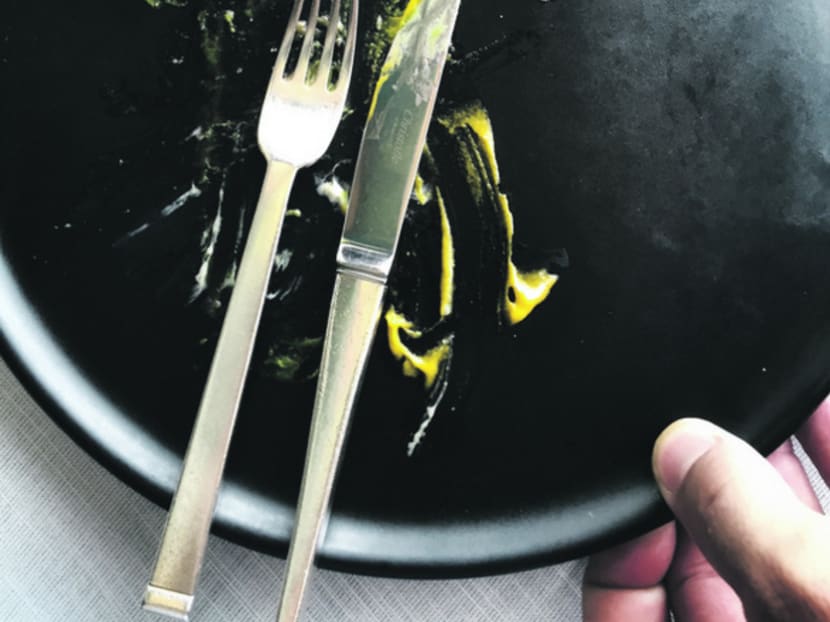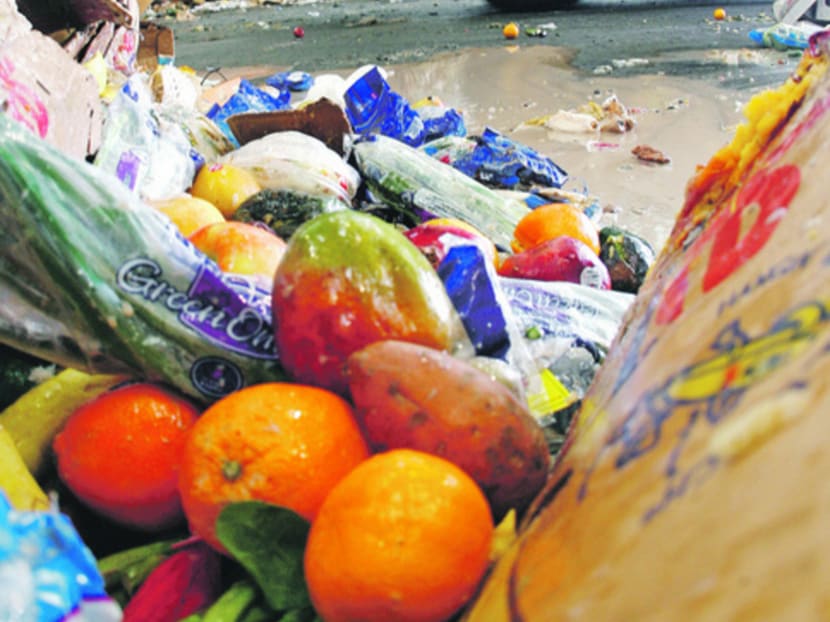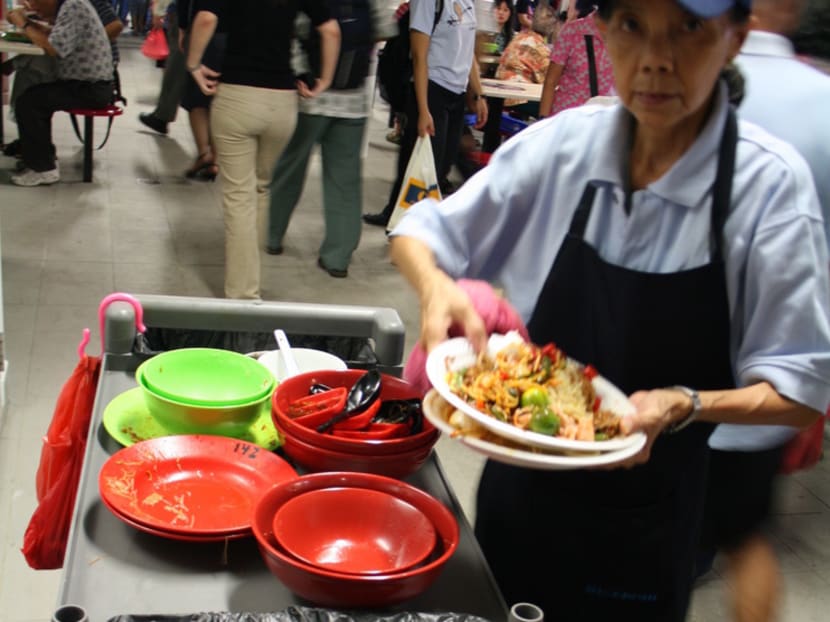Singapore’s food waste problem is an issue that’s hard to stomach
Just about every one of us is guilty of it. Whether you throw out expired food that has been left at the back of the fridge after raiding a sale, dump week-old leftovers you forgot to reheat, walk away from that last bite of cake because a book called French Women Don’t Get Fat said to do so, or order more dim sum than your party can stomach because, you know, a heaving table of food is more Instagrammable.



Just about every one of us is guilty of it. Whether you throw out expired food that has been left at the back of the fridge after raiding a sale, dump week-old leftovers you forgot to reheat, walk away from that last bite of cake because a book called French Women Don’t Get Fat said to do so, or order more dim sum than your party can stomach because, you know, a heaving table of food is more Instagrammable.
But in a country where poverty does not immediately seem to be a prevalent social problem, the issue of food waste becomes invisible to most. Except that it has now become a rather massive elephant in the room — last year, there was 788,600 tonnes’ worth of wasted food.
To put things in perspective, that’s equal to almost 1,400 fully-loaded A380 planes and translates to two bowls of rice per person per day. And this figure is rising, increasing by 48 per cent over the past 10 years.
It is easy to point the finger at various culprits: Supermarkets that discard or trim off edible produce just because they look less than perfect, or a catering industry prone to overestimating our appetites, or shops that throw away unsold baked goods at the end of the day in the name of guaranteeing freshness.
However, wastage is in every link of the chain and the home kitchen is one of the growing contributors, with an increasing number of people making the lifestyle switch from eating out to having home-cooked meals.
IT ALL BEGINS AT HOME
Ahead of World Food Day last week, kitchen appliance brand Electrolux conducted a survey of 1,000 Singaporeans aged 18 to 65 years old. It revealed that 51 per cent of the respondents generate waste through poor portioning, 48 per cent are guilty of throwing out forgotten, expired food, and 23 per cent throw out leftovers simply because they do not like the idea of eating them.
This echoes the findings from a 2010 research conducted by a group of Nanyang Technological University undergraduates. In a survey of 174 Singapore residents, it was found that six in 10 purchase more than what they need while shopping for groceries, leading to an overstocking of food that is likely to expire or spoil before consumption. The survey also revealed that 70 per cent would discard edible food that has passed its “use by” date by one to three days.
By collecting a day’s worth of food waste from 150 families staying in HDB flats, condominiums and landed properties, the survey found that the average household food waste per person per day was 126g. Multiply that by our population size and you get a whopping figure of over 700 tonnes of food waste coming from home kitchens every day.
In conjunction with the Electrolux Food Waste At Home Survey, #happyplatesg — a six-week community initiative that encourages people to commit to clearing their plates at mealtimes — was also launched with the aim of creating better food-waste awareness, and help more than 1,000 families in need through the campaign’s beneficiary The Food Bank Singapore.
“Food wastage is something that cuts across all income levels,” said Nichol Ng, founder of The Food Bank Singapore. “It’s just about the extent of food waste. For families with a really low income — those that may not even be able to afford appliances to keep the food fresh, or warm up food — any food they have will need to be consumed on the day it is bought.”
The campaign aims to change people’s behaviours in two ways, said consulting chef Eric Low, who has provided tips and recipes on the campaign’s microsite. “One, by making people more aware of what is, and how much is, on their plate; and two, by encouraging people to plan ahead and think about what they can do with their leftovers with a little bit of creativity.”
NATIONAL SECURITY MATTERS
Other initiatives have also been set up to tackle the issue, such as 12-year-old non-profit organisation Food From The Heart, which distributes surplus food from bakeries to the needy.
In 2012, sustainability consulting company Green Future Solutions and ECO Singapore, an environmental advocacy group, also launched a Save Food Cut Waste campaign, but there have been scant updates so far.
If you are thinking that this is too much fuss over a bad habit, think again. In the nation’s 2014 Budget debates, the topic was raised as a factor that weakens Singapore’s food security, being a nation that produces a tiny fraction of what we eat. To that end, National Environment Agency (NEA), Agri-Food and Veterinary Authority (AVA), and SPRING Singapore are developing guidelines for food manufacturers and retailers to manage food waste, while the NEA and AVA are respectively creating outreach programmes on food waste, which targets students, the community and retailers.
The issue is clearly not just a moral one but one with real implications on our nation’s economy and even security, as food wastage reflects an inefficient use of food resources and an inflated demand for food supplies.
Who knew our mothers were teaching us more than frugality when they nagged at us to finish our food?
Click to eat: For more delish deals and news on what’s hot on the scene, download the 8 Days Eat App at http://www16.mediacorp.sg/8days/8daysapp2.html





